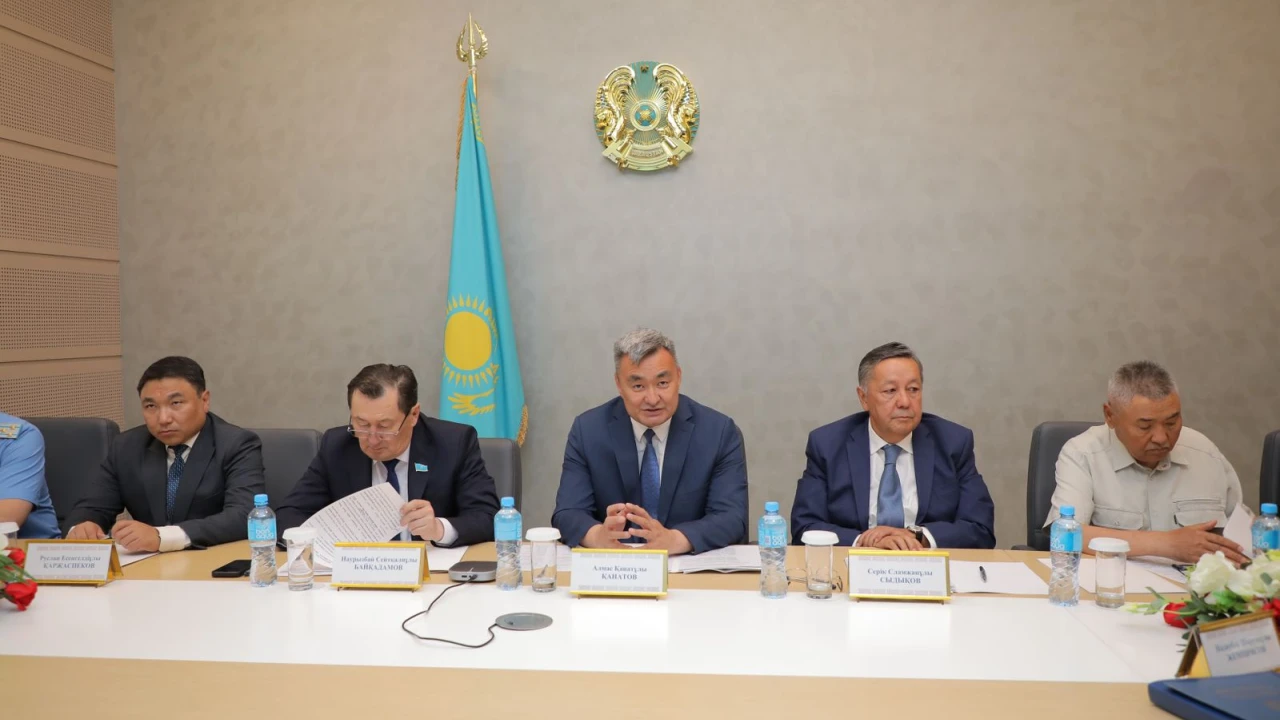
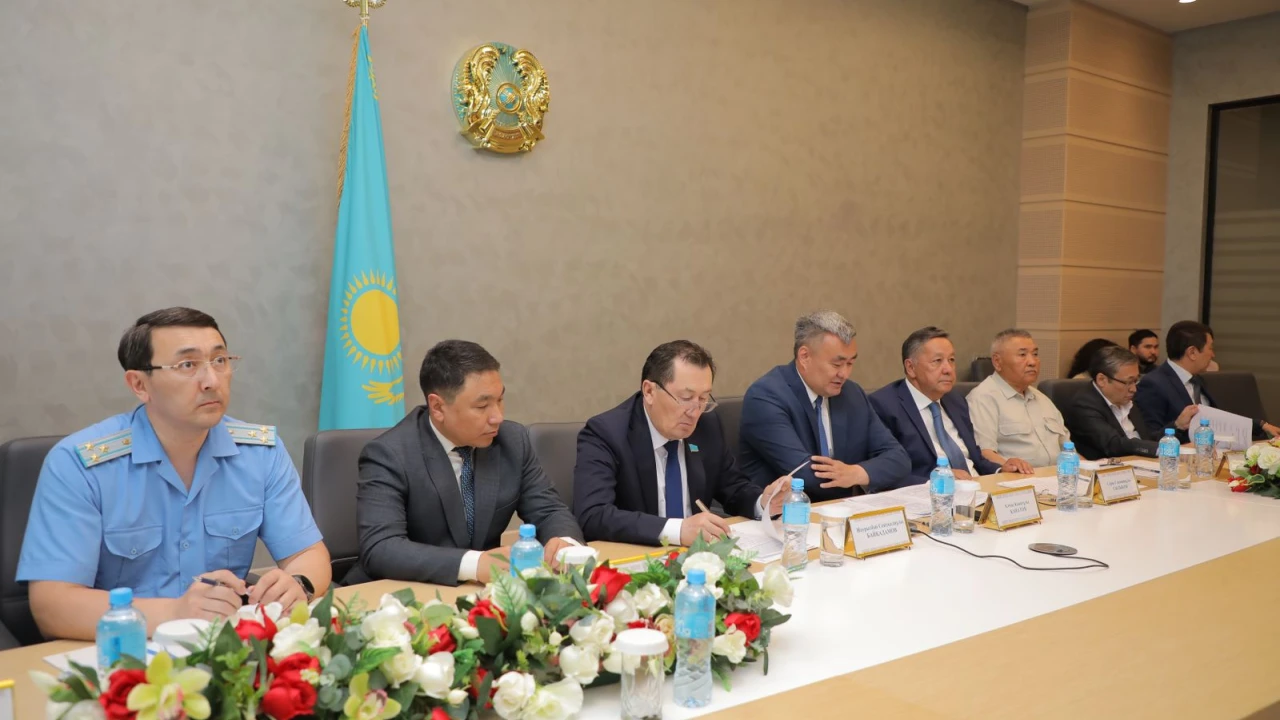
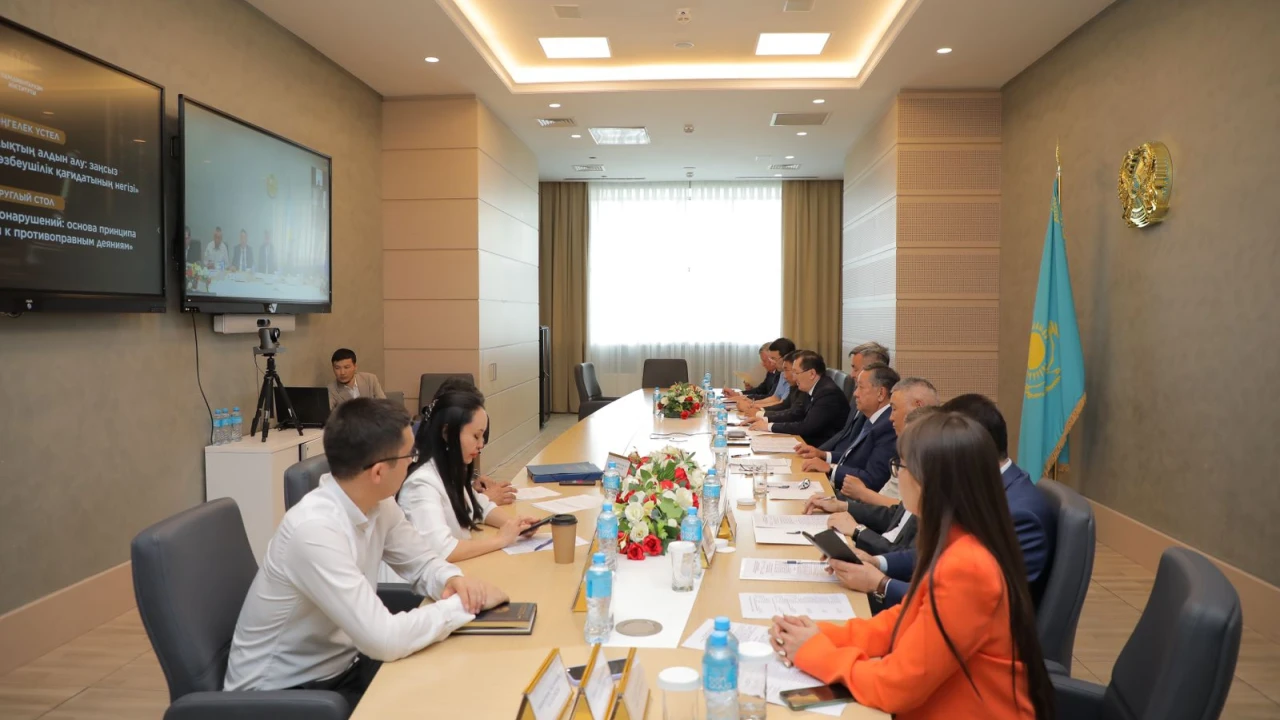
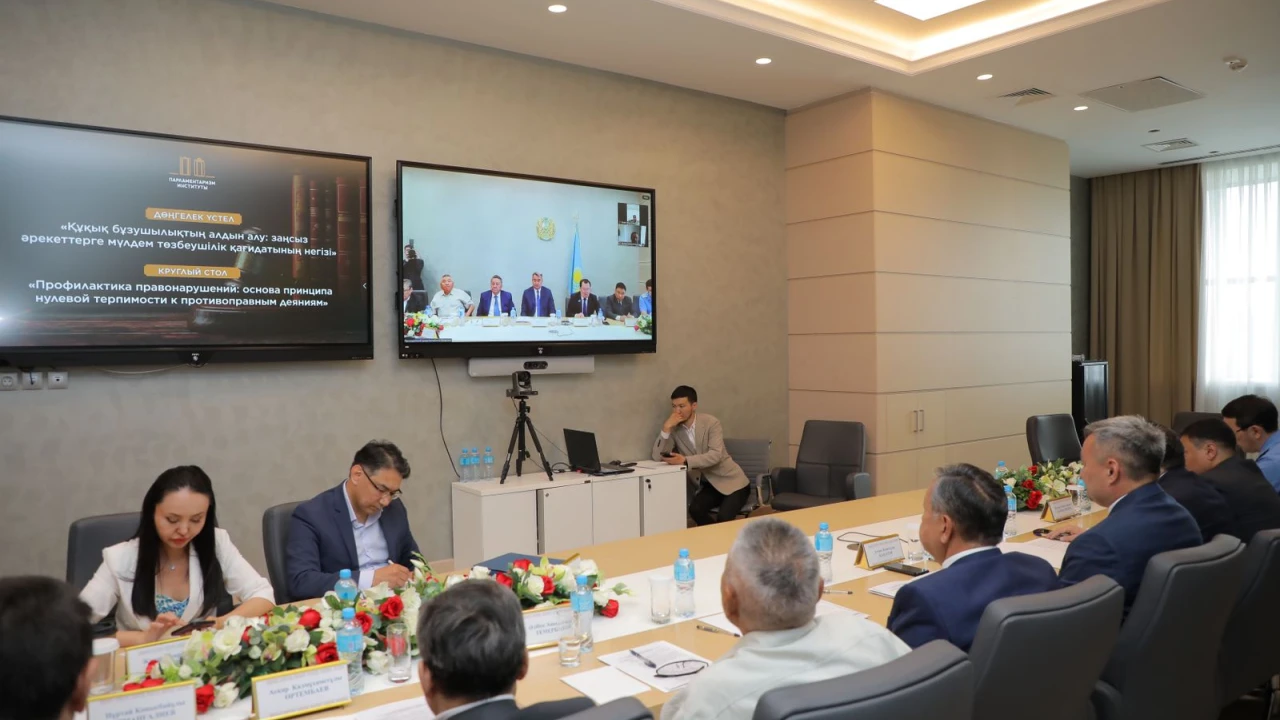
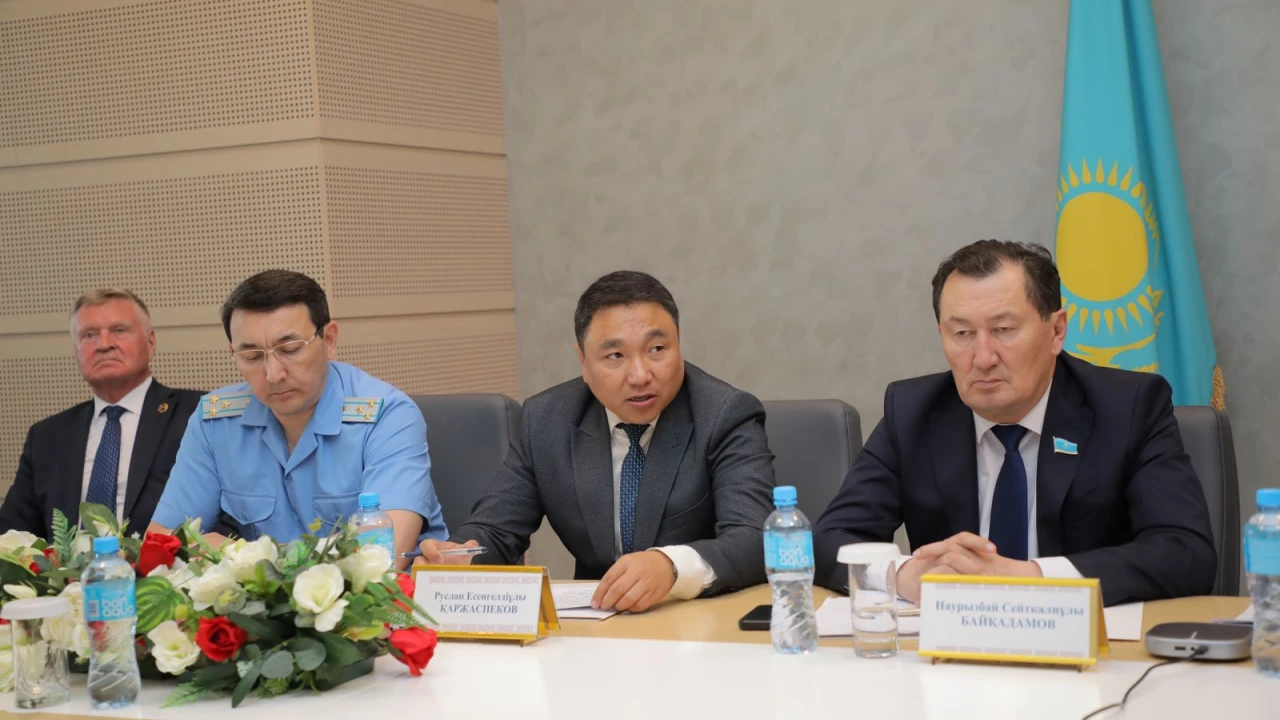
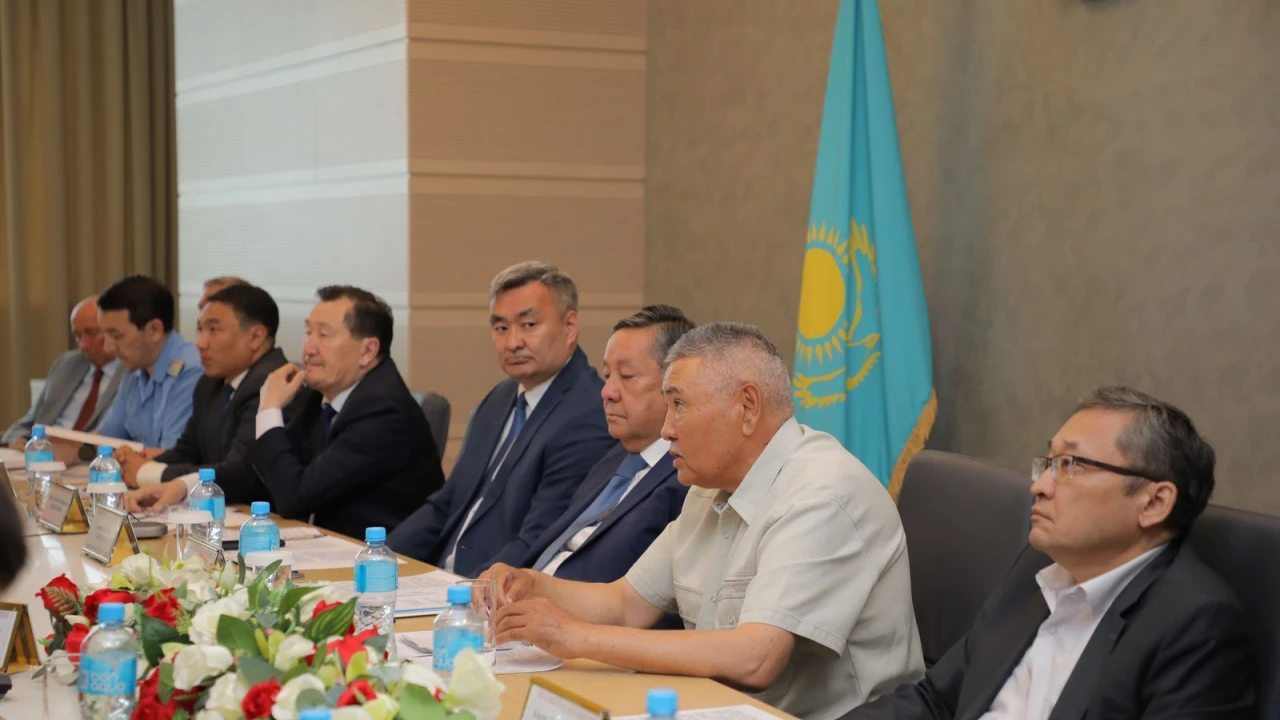
On June 20, the Institute of Parliamentarism under the UDP of the Republic of Kazakhstan and the Presidential Center of the Republic of Kazakhstan held a round table on the topic: "Crime prevention: the basis of the principle of zero tolerance for illegal acts."
In the election program of President K.K. Tokayev, "A fair Kazakhstan is for everyone. Now and forever" the task has been set to increase the effectiveness of the crime prevention system, expand the participation of citizens in developing solutions to ensure law and order.
To achieve this goal, the Government of the Republic of Kazakhstan is currently developing a draft law on the prevention of offenses, which will combine five existing laws – "On the prevention of offenses", "On the prevention of domestic violence", "On the prevention of offenses among minors, prevention of child neglect and homelessness", "On administrative supervision of persons released from prison", and "On the participation of citizens in ensuring public order." The Institute of Parliamentarism is preparing its amendments and proposals to the document.
As noted by the participants of the round table – members of Parliament, representatives of government agencies, experts and scientists - the development of a unified law in the field of crime prevention has been overdue for a long time. The adoption of the law will improve the legal protection of the population and simplify law enforcement practice. It should clearly specify the competencies of responsible authorities, mechanisms for interdepartmental coordination and tools for individual crime prevention.
As Almas Kanatov, Executive director of the Institute of Parliamentarism for Norm-setting, noted in his speech, the country's security level is one of the main criteria for its development.
In addition to the draft law, the participants of the round table discussed a new Concept of public safety for 2024-2028. (in the field of crime prevention), which determines the priority areas of work.
The Concept defines such indicators of public safety as increasing the level of feeling of personal, property and public safety of citizens to 80.5%; improving the position in the global index of peacefulness from 97 to 65 places; increasing confidence in the police to a level above 83%; entering the top 40 countries in the rule of law index "WJP Rule of Law Index", by increasing the country's position on the "Order and Safety" factor to 35th place with an improved position in the WHO road safety ranking to 70th place.
Almas Kanatov, Executive Director of the Institute of Parliamentarism for Norm-setting, stressed that the country's security level is one of the main criteria for its development.
The round table was attended by Deputy of the Senate of the Parliament of the Republic of Kazakhstan Nauryzbai Baykadamov and Deputy Director of the Presidential Center of the Republic of Kazakhstan Serik Sydykov.
Alibek Temerbekov, an expert at the Institute of Parliamentarism, Doctor of Law, focused in his speech on some historical aspects and the current state of crime prevention.
Ruslan Karzhasbekov, Head of the Department of Preventive Activities of the Administrative Police Committee of the Ministry of Internal Affairs of the Republic of Kazakhstan, elaborated on the norms of the draft Law of the Republic of Kazakhstan "On the Prevention of offenses".
Associate Professor of Astana International University Yerzhan Zhambayev devoted his speech to crime prevention as a form of citizen participation in the protection of public order.
The recommendations formed as a result of the round table will be sent to the authorized bodies and the Parliament for further consideration.



